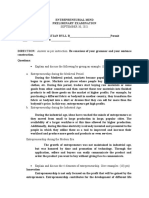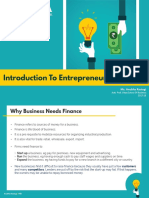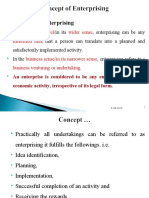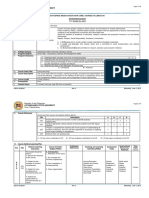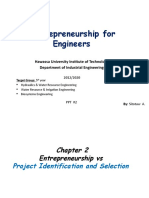100% found this document useful (1 vote)
232 views44 pagesENT 101 Week Lecture 1
The document outlines a course on entrepreneurship aimed at introducing students to the principles of business management and human resources. It covers course objectives, learning outcomes, and the importance of developing an entrepreneurial mindset, along with practical activities like creating a business plan. The course emphasizes the role of entrepreneurs in society, the skills required to succeed, and the differences between entrepreneurs and employees.
Uploaded by
ediomoakpabio08Copyright
© © All Rights Reserved
We take content rights seriously. If you suspect this is your content, claim it here.
Available Formats
Download as PPTX, PDF, TXT or read online on Scribd
100% found this document useful (1 vote)
232 views44 pagesENT 101 Week Lecture 1
The document outlines a course on entrepreneurship aimed at introducing students to the principles of business management and human resources. It covers course objectives, learning outcomes, and the importance of developing an entrepreneurial mindset, along with practical activities like creating a business plan. The course emphasizes the role of entrepreneurs in society, the skills required to succeed, and the differences between entrepreneurs and employees.
Uploaded by
ediomoakpabio08Copyright
© © All Rights Reserved
We take content rights seriously. If you suspect this is your content, claim it here.
Available Formats
Download as PPTX, PDF, TXT or read online on Scribd
/ 44

















